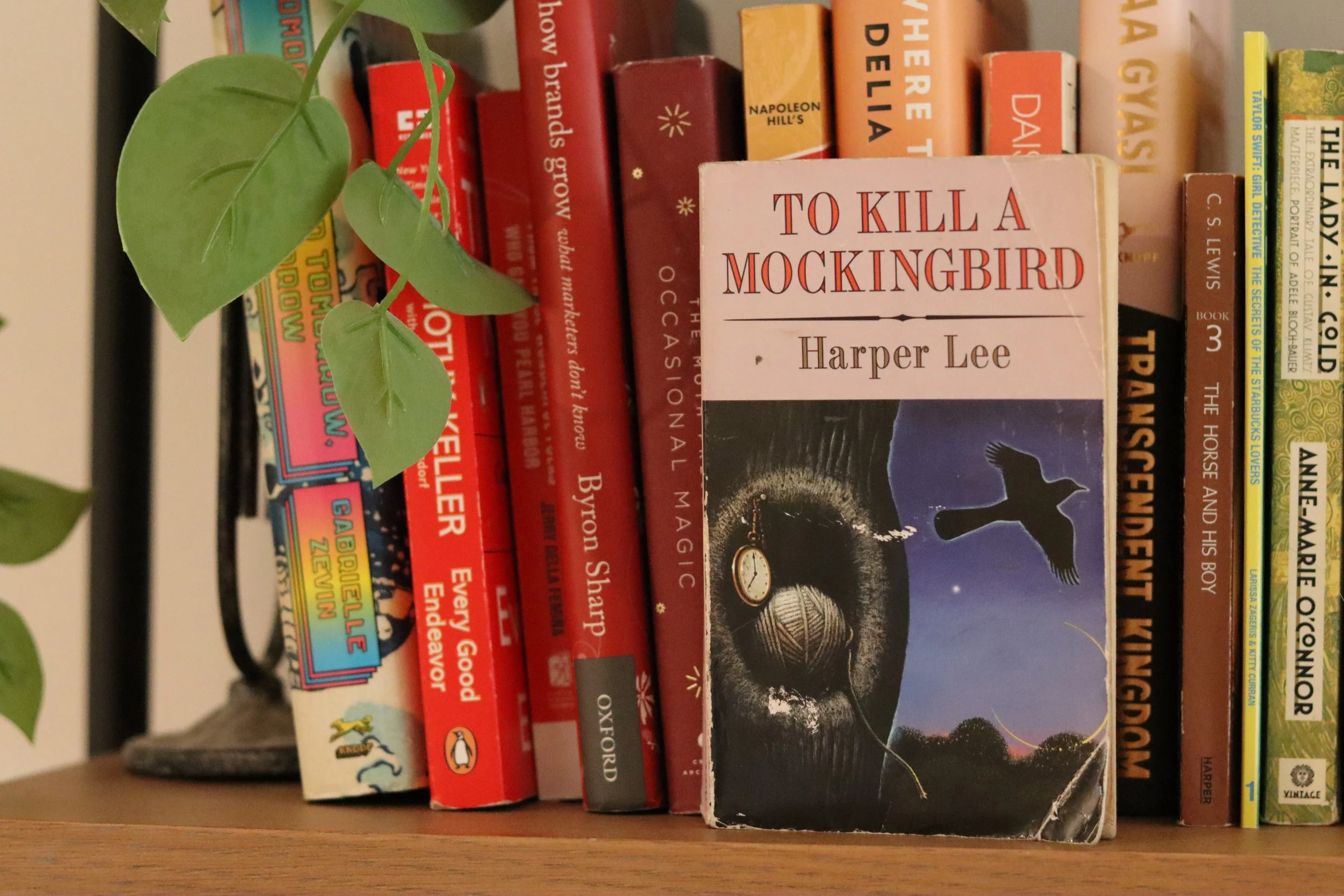Gabrielle Gresge
Editor’s note: This is a 2025 Summer Writing Contest Runner-up.
The porch wrapped all the way around the house and gave the perfect perch over the street. Since porches are for sitting in the summer, the experience of sitting there, to me, is still synonymous with two things: the maple tree in the front yard that hummed from the inside out with the sound of cicadas, and how it felt to sit among the humming and read.
I think my eighth grade English teacher and Harper Lee herself conspired to have that suburban Chicagoland porch as the setting for me to read To Kill a Mockingbird for the first time: the Midwest heat was not unlike the muggy, deep-South summer Harper Lee’s characters exist in – a heat so acute you can see it. I even had a sequestered neighbor that bore a striking resemblance to Boo Radley (or would have, if he’d ever come out).
The stage was set: I had a few weeks of August to get my required summer reading done, and my (then) fresh copy of the book – a paperback that would one day be the centerpiece of all of my future bookshelves, from Missouri to London to present-day Lincoln Park.
Like people, stories come into our lives at certain times for a reason. When I think of myself on that porch, I wish I could run up my childhood street, past the maple tree and whisper to her, “this one is going to be important.”
But as teenagers tend to be, I was filled with sentimentality and a wistfulness for the future. I would have whispered right back in that omniscient, teenager-y way, “I know.”
I knew because, for one, I was raised in a homogenous community – one that was full of great people with great intentions, but one that wasn’t necessarily exposed to racial injustice. This was my first time grappling with not just the concept, but with the confusion, and, well, rage, that accompany it. It woke me up.
But I also knew then that the story would nestle its way into my soul because that was the summer I started calling my dad Atticus. At thirteen, most of the books in my orbit revolved around saccharine, romantic love; this was the first time that familial love – and familial love like my own – took center stage. I felt seen by a book for the first time.
In this way, Scout and I grew up together; To Kill a Mockingbird ushered in a kind of adulthood for me. Looking back, it’s only right that the story catalyzed another season of life many years later: during an equally soupy August, this time in New York City, me and the man I’d one day marry saw the play on Broadway after bonding over our mutual love of the book.
The pages of that middle school-issued paperback are still a little warped from the humidity of that summer – but it only feels right, because I only re-read it deep in August, when the cicadas start singing.
